Research
I attempt to provide a brief summary of my research here, with the projects listed in reverse chronological order (i.e. my most recent work appearing first).
Current research (my PhD work)
Occurrence and architectures of planetary systems as a function of stellar type
Do all stars host similar numbers and types of planets? We use the Kepler data and our forward model to explore how the fraction of stars with planets may depend on the spectral type, as well as their system architectures…
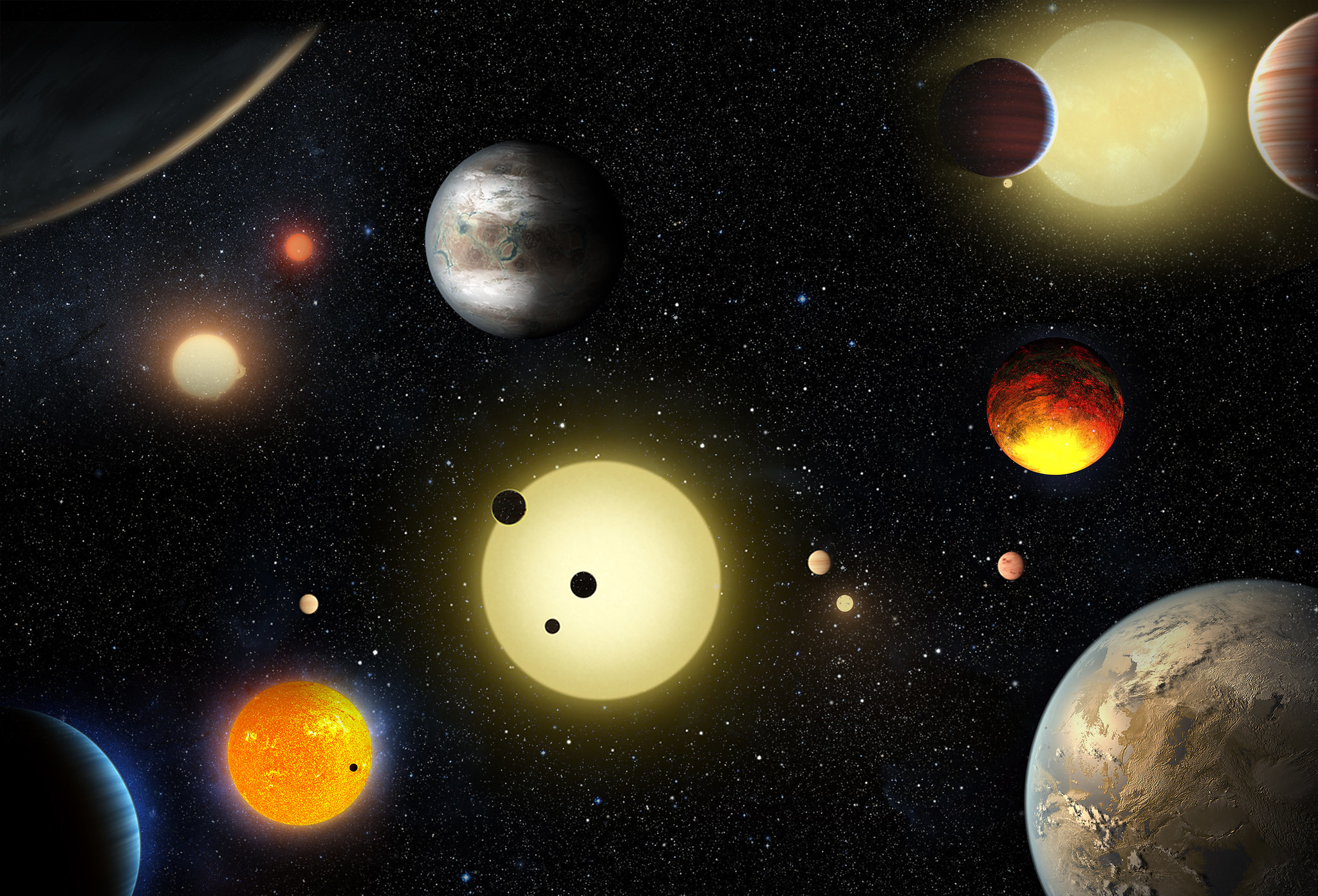
Image credit: NASA MSFC
Architectures of the Kepler multi-transiting systems
The Kepler mission detected thousands of exoplanet candidates (planets that orbit other stars) using the transit method. Many of these exoplanets are in systems with several other planets. How can we use these discoveries to understand the true distribution of all planetary systems, when most planets do not transit? We use advanced statistics to forward model the Kepler mission and infer the underlying planetary system properties…
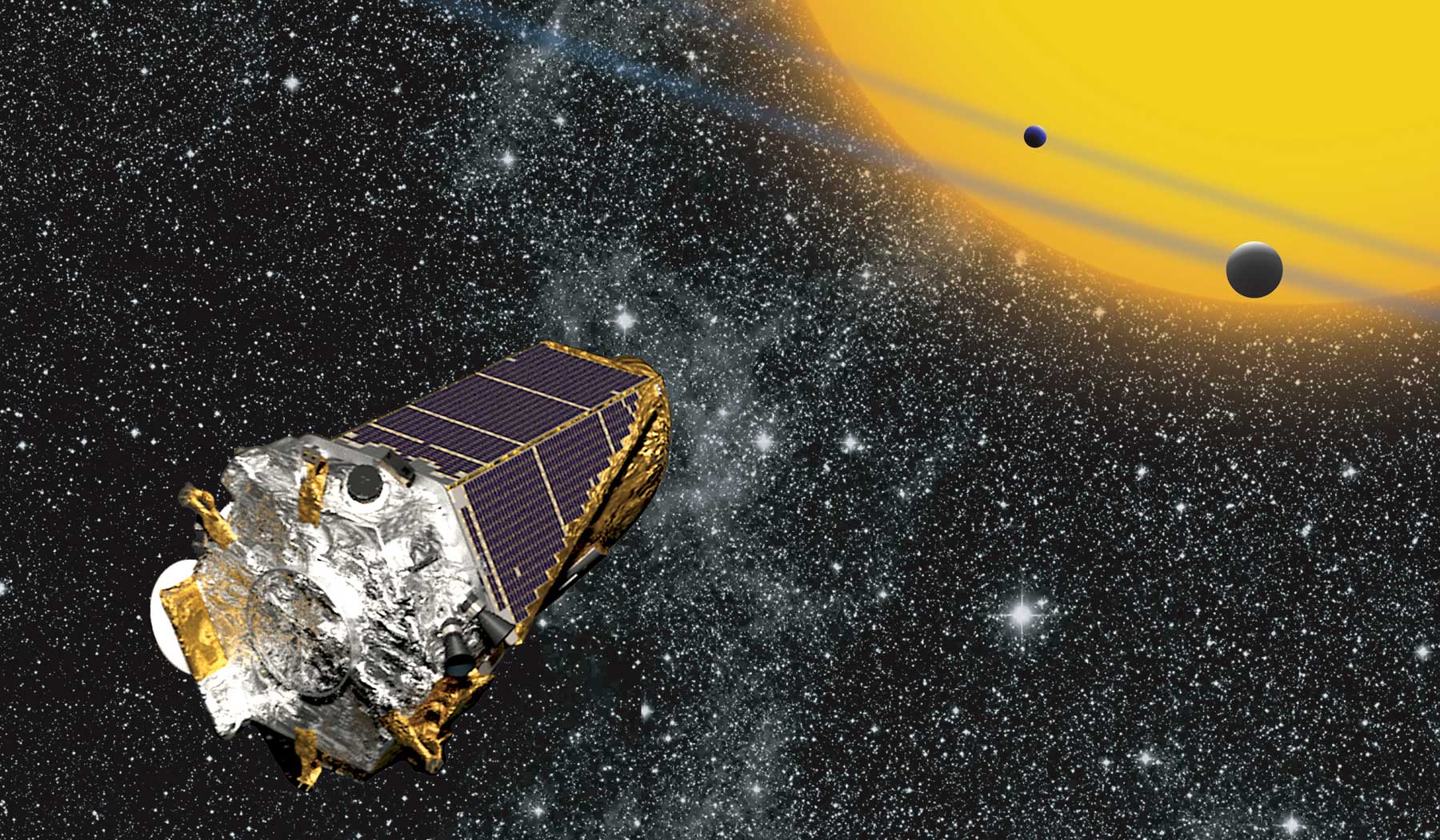
Image credit: NASA Ames
Past research
Stability and collisions of triple stellar systems
Many stars are in multiple-star systems, gravitationally bound and orbiting a common center of mass. Which configurations are stable and can we predict long-term stability from initial conditions? We use N-body simulations to test stability criteria and quantify both stable and unstable outcomes…
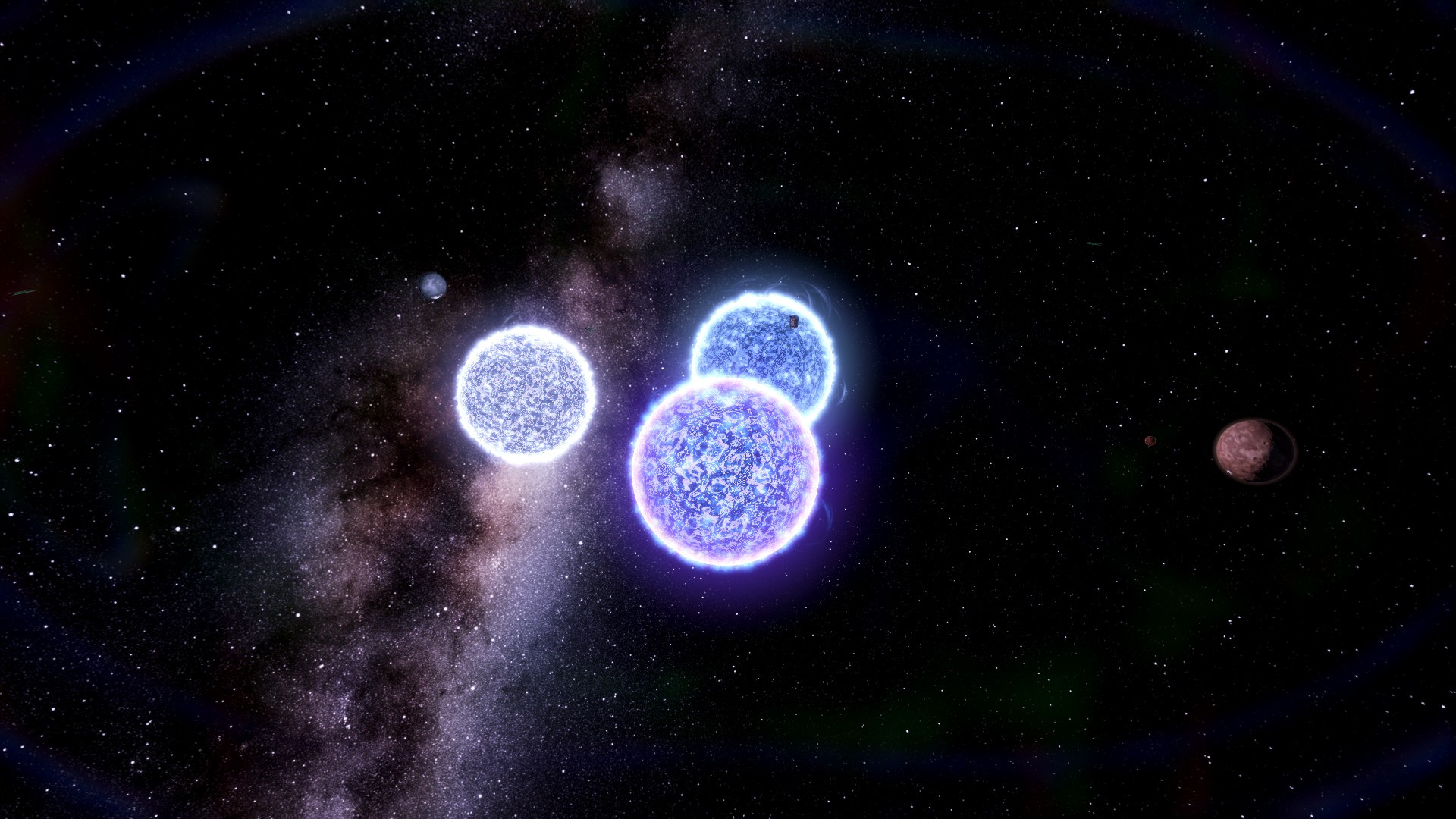
Characterizing variable stars with time series analysis
Some stars change in brightness over time - what causes these variations? We classify a large number of variable stars from an astronomical survey using their light curves…
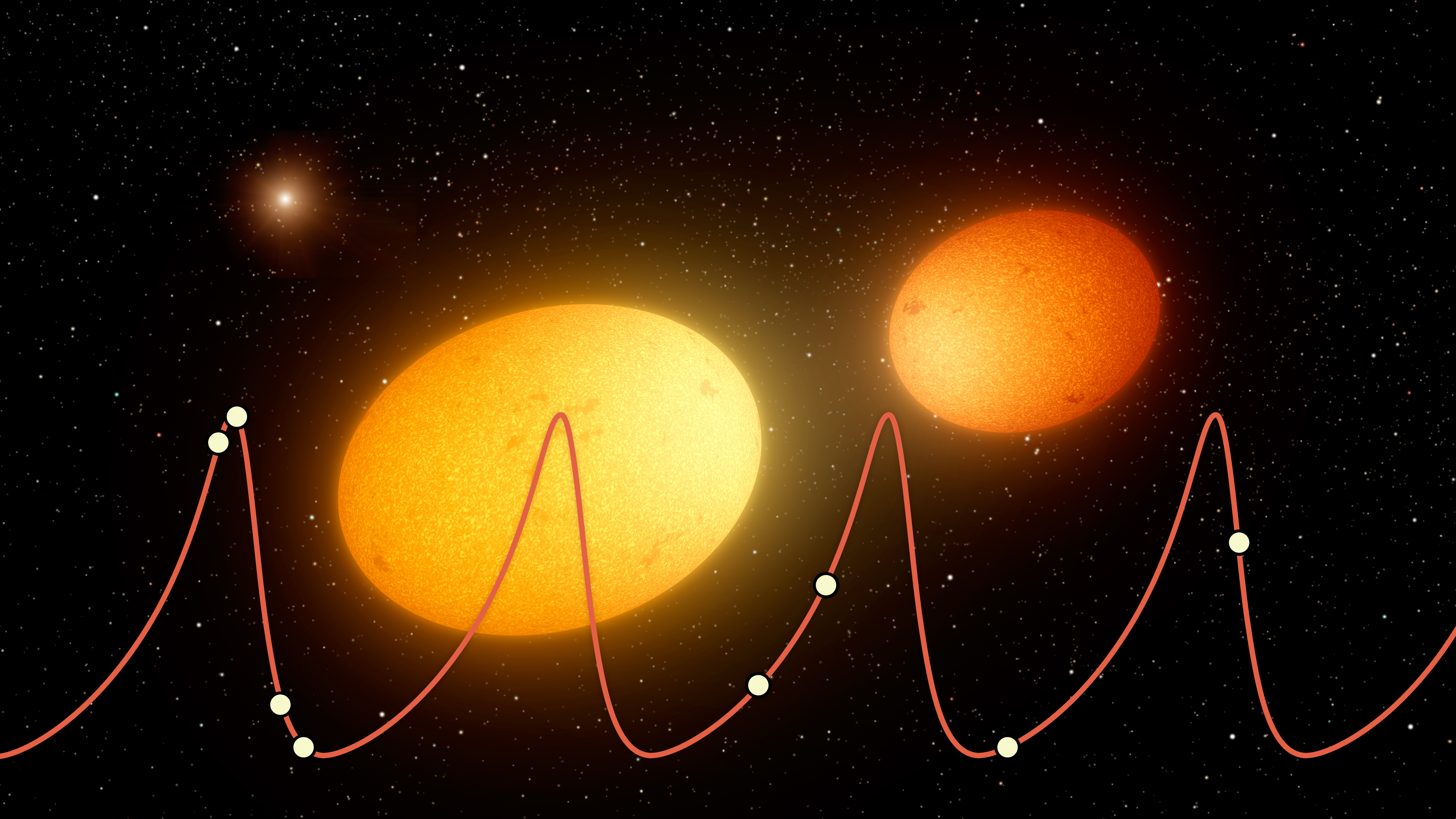
Image credit: NASA/JPL - Caltech
Occurrence rates of planets around brown dwarfs
Planets are common around normal and Sun-like stars, but do they exist around brown dwarfs, which are stars too small to fuse hydrogen? We try to estimate the occurrence rates (average number of planets per star) of small planets around these small stars using transit simulations…
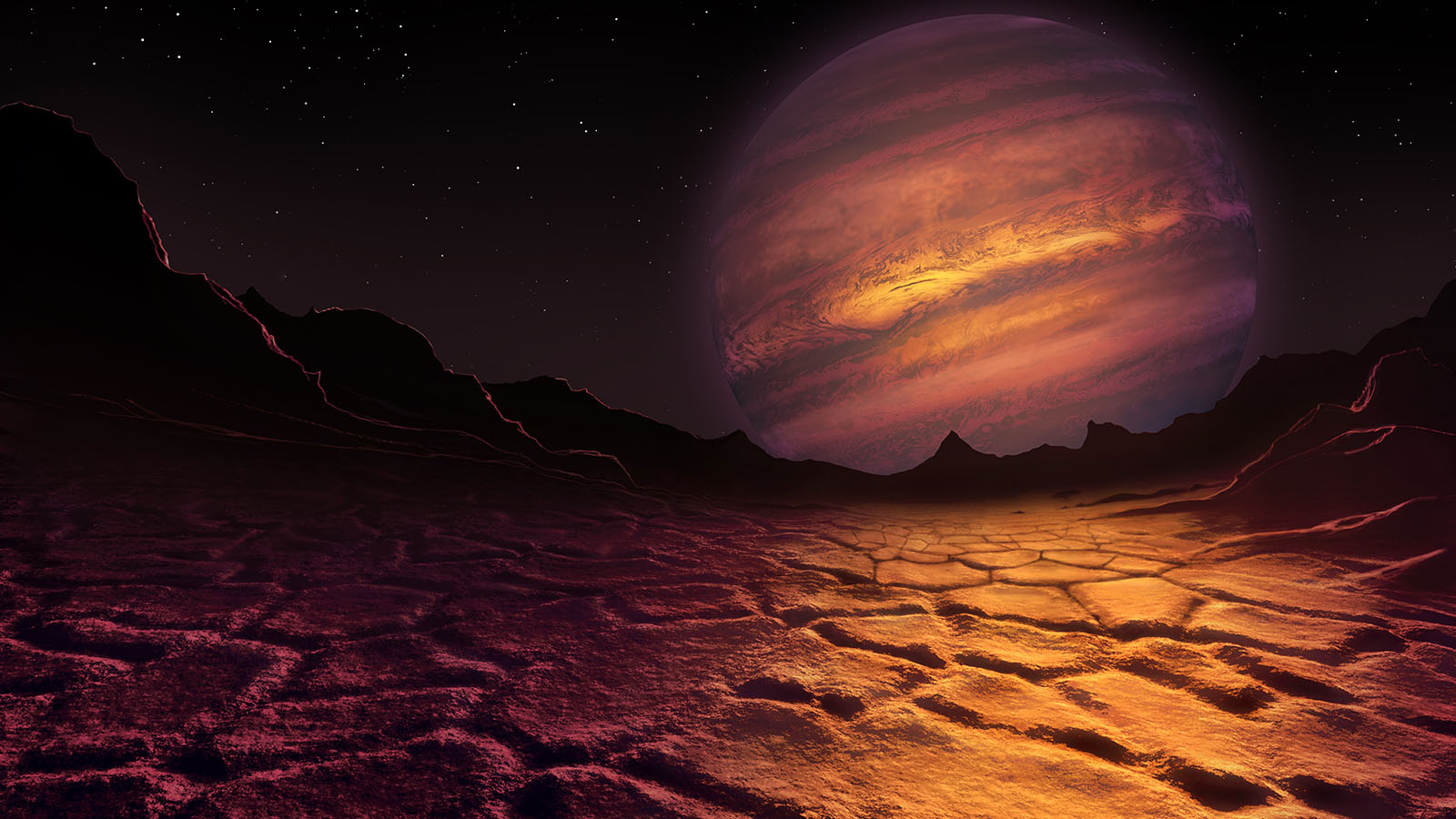
Image credit: Mark Garlick